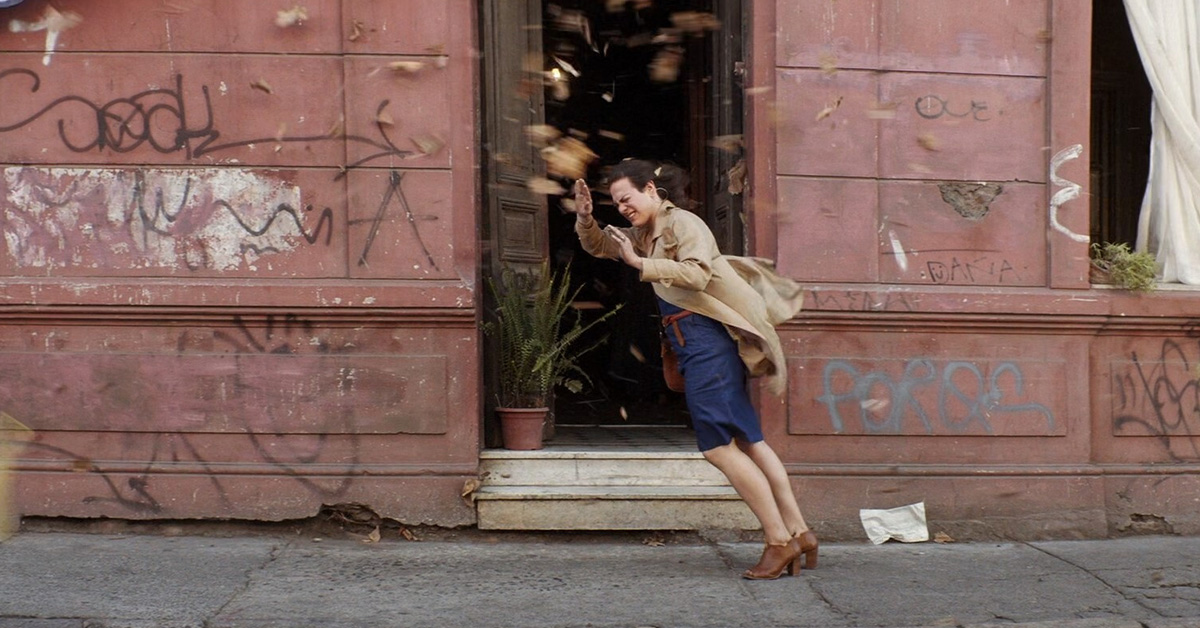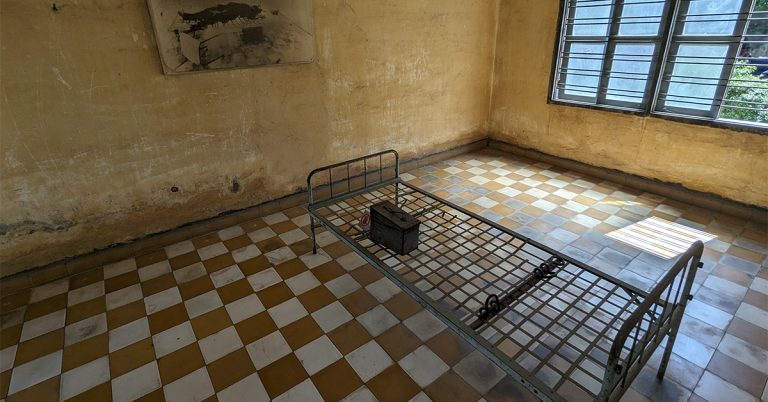
by Paige Macintosh
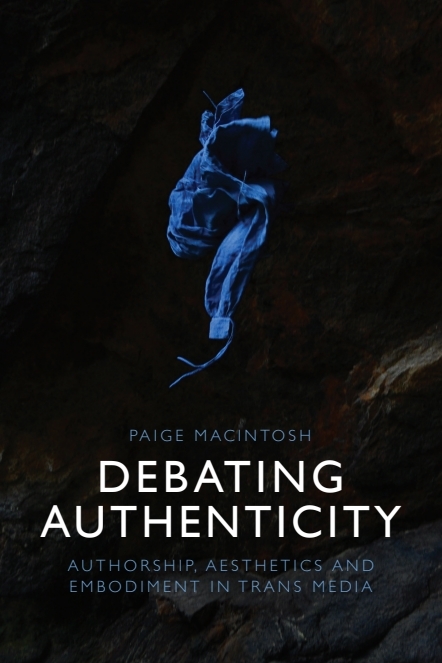
Debating Authenticity merges phenomenology, paratextual analysis, genre studies, cultural theory, and trans scholarship to investigate emerging debates regarding trans media’s authorship, authenticity and aesthetics across the first two decades of the twenty-first century.
Paige Macintosh shares what inspired their research on trans media, the current political landscape and their hopes for trans inclusivity in the coming years.
How does the current cultural and political landscape inform your research into trans media?
It’s remarkable to think how much has changed in the world since I began this project in 2019, both in terms of global politics and media industries. It was only in April of this year that the UK Supreme Court ruled that the terms ‘woman’ and ‘sex’ in the Equality Act refer only to ‘biological’ women and to ‘biological’ sex, an act that will have dire consequences for the trans community and is designed to transform public areas into hostile spaces for trans women in particular. Political changes like these inform and are informed by screen media culture, however isolated the two may seem.
The current political and cultural backlash against trans communities is, in many ways, a response to trans people’s hyper-visibility in mainstream media. My research pushes against simplistic celebrations of trans visibility to expose the charged relationship between cis media producers and trans creatives.
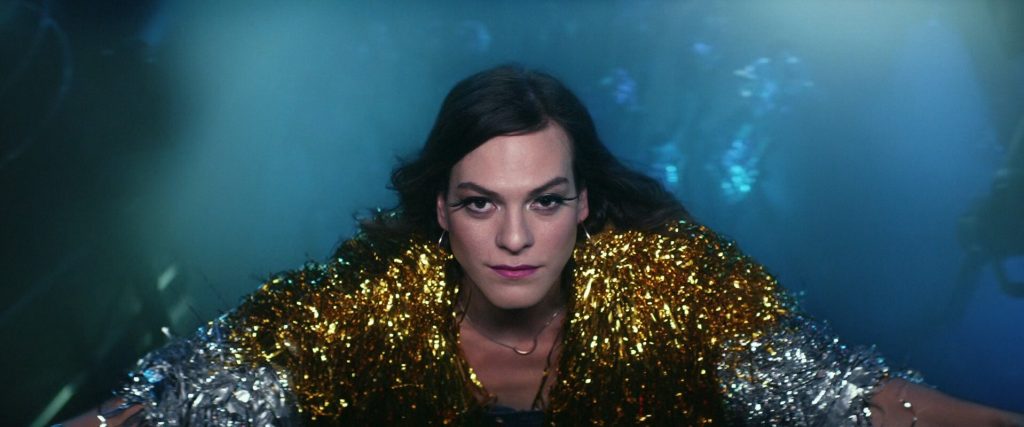
What inspired your research into contemporary trans media?
Looking at A-list international film festivals, it’s clear that trans cinema has become more conspicuous since the 1990s. What’s less obvious is how this increased visibility reflects changes in how screen industries value trans content. Looking at events like Berlin, Cannes and Sundance, it’s unmistakable that, although these festivals value trans films like A Fantastic Woman (2017), Girl (2018) and Adam (2019), they don’t value all trans films equally. It’s also clear that the terms of this value changed during the 2010s. Increasingly, these productions rely on trans people to not only sell their films as an authentic product, but to defend these films from criticism. I was interested in exploring how the cultural capital afforded trans cinema has shifted from trans characters to trans industry workers during this period.
What was the most exciting element of this project for you?
Given the ways mainstream media industries exploit authorship and authenticity claims without ceding power to trans creatives – and keeping in mind the unknowability of people’s gender identities – I wanted to think about other ways of classifying and evaluating trans media. Is it possible to describe a trans aesthetic that exists beyond transition narratives and trans characters? Could a film like Repo! The Genetic Opera (2008), a film without any explicitly trans characters, trans storylines or trans filmmakers working behind the scenes, still express a trans worldview?
In the latter half of Debating Authenticity, I use trans aesthetics as a starting point for proposing alternative modes for classifying trans media that begin rerouting power from cis industry elites to trans viewers and creatives. My own interpretation of trans aesthetics draws from my experiences as a trans viewer, taking the form of a ‘revisitation’ (inspired by Cáel Keegan) of Repo, an incredibly camp (and bloody) horror musical. I firmly believe that by allowing the compelling relationship between trans subject and media object to guide trans media’s categorisation, scholars and critics can foreground trans viewers so as to expand cultural understandings of trans affect.
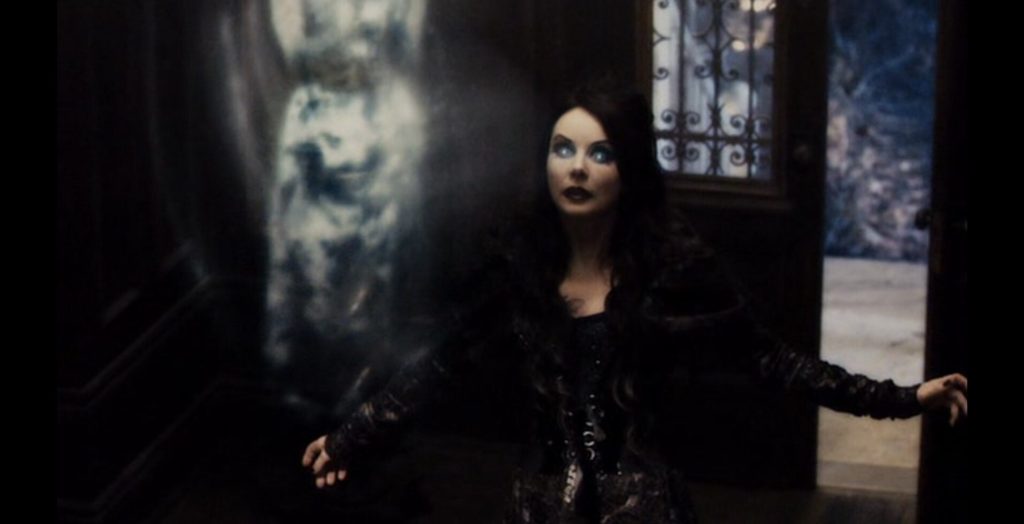
How would you like to see the field of trans media scholarship develop in the coming years?
As the field of trans media scholarship continues to grow, authorship claims asserting cultural credibility should not be overvalued. Scholars and cultural critics should look beyond film and television content to consider these works’ industrial context, their relationship to trans communities and their place within trans cultural histories. At the same time, trans scholarship should continue to foreground the lived experiences of trans people. In these ways – by foregrounding solidarity within the community and the material conditions of trans workers – trans media and its study can achieve more than just visibility.
How does your book further this goal?
Debating Authenticity presents a variation of trans aesthetics that, although drawn from my own experiences as a trans viewer, is recognisable to cis and trans audiences alike. Acknowledging trans studies’ affinity for generic hybridity, I consider how blending Gothic and science fiction with feminine-coded spectacle – either through melodramatic or musical tropes – inspires opportunities for trans encounters that are unlike trans representations typical of mainstream productions. In doing so, I reject trans media’s tragic associations in favour of more playful evocations of trans embodiment, because being trans is more than gender dysphoria, medical transition and death. Ultimately, it is through more expansive definitions of trans media that scholars can refocus on work that speaks with and to trans subjects, rather than speaking about them.
About the author
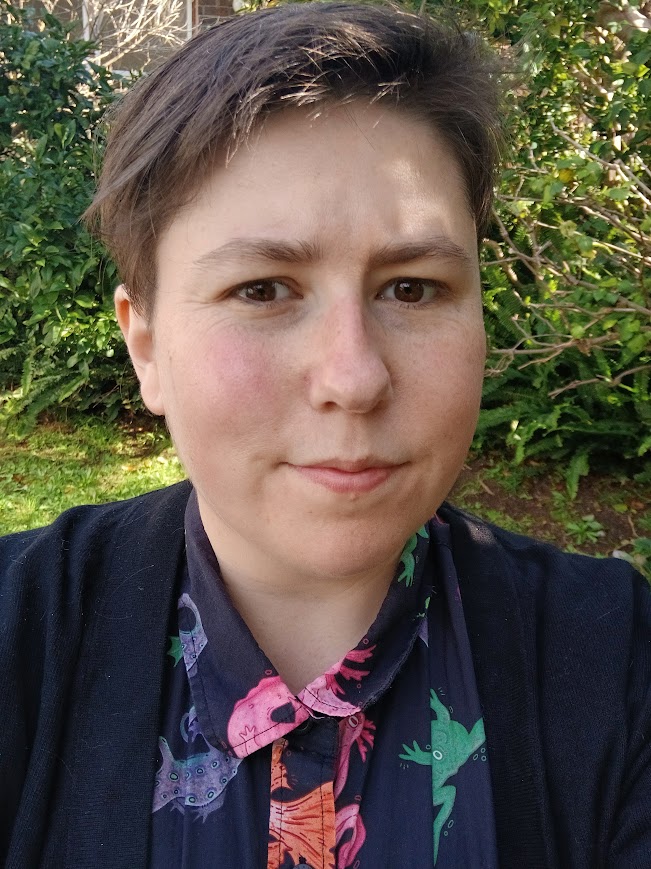
Paige Macintosh is a trans scholar based in Aotearoa New Zealand. Their research explores the production, marketing and reception of contemporary trans media, as well as representations of trans embodiment and euphoria in genre filmmaking.



